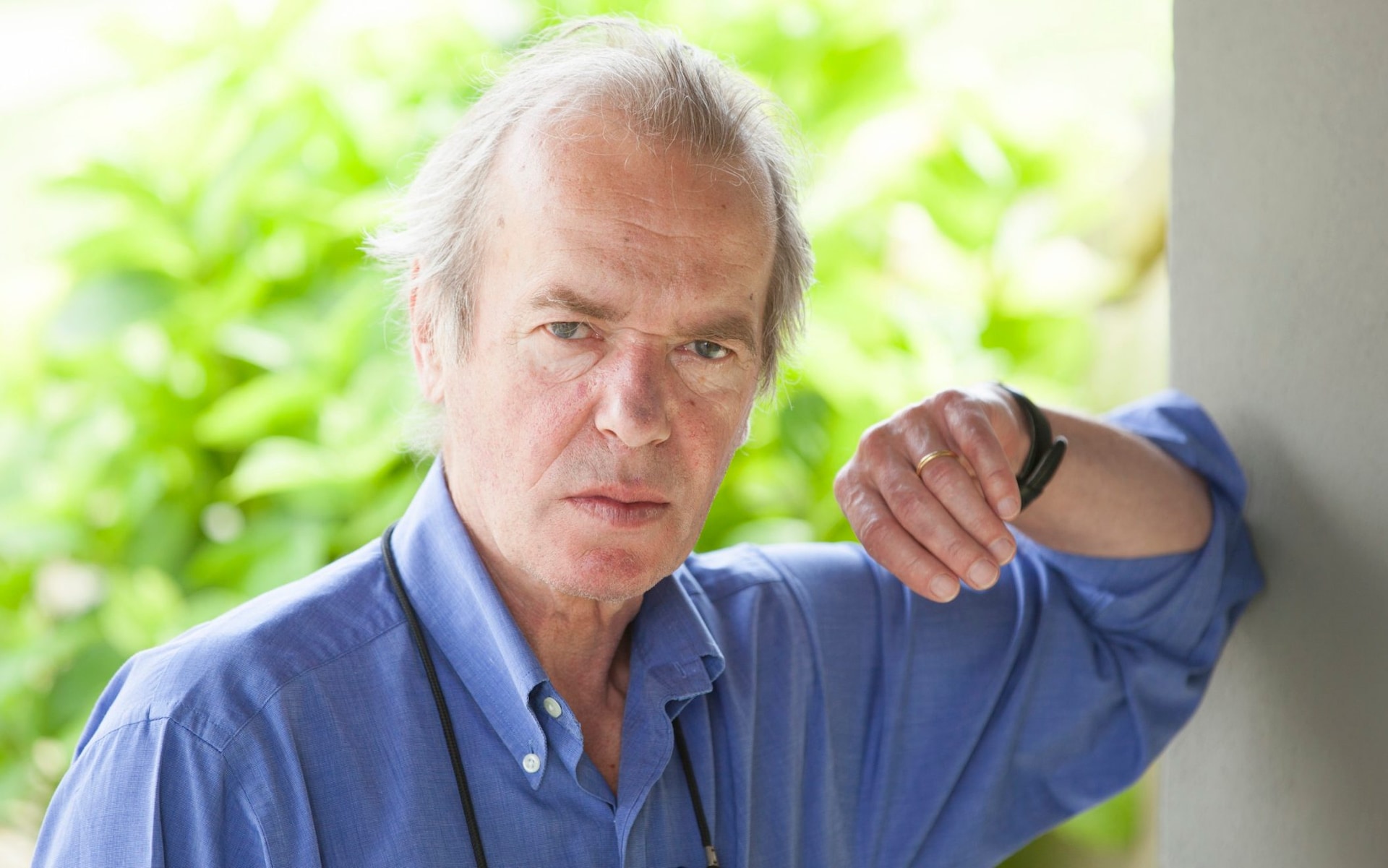
MORE LAUGHTER THAN TEARS AS CELEBRITIES REMEMBER LITERARY GIANT MARTIN AMIS
There’s an old Kingsley Amis ditty:
Death has this much to be said for it:
You don’t have to get out of bed for it.
Wherever you happen to be
They bring it to you – free.
It came to mind on Monday afternoon, at St Martin-in-the-Fields. In the neoclassical church where the late Kingsley was celebrated 28 years ago, a service presided over by his second son, this week it was the turn of that son himself. Like Kingsley’s verse, Martin Amis’s memorial service refused, almost to the last, to be ponderous or grim. More often, it was hilarious.
What did we expect? “He was the funniest man I ever met,” his friend and fellow novelist Ian McEwan told us. “He wrote with a delight in human difference.” McEwan suggested that no prose stylist had ever written so many lines that stick in the memory for their sheer wit: he cited (inter alia) Amis’s cutting review of a novel by Michael Crichton – “herds of clichés roaming free” – and a line about Amis’s friend Salman Rushdie having “vanished into the front page”.
By the time McEwan gave us Amis’s description of a man using a lavatory in an echoing cubicle – a sound like someone “emptying a sack of melons down a deep well” – the gathering was tuned like the audience at a comedy gig. (But as the man himself once said: “You read literature to have a good time. Why else would people go on doing it?”)
For Kingsley, in 1996, the principal speakers were Karl Miller, Christopher Hitchens, Tim Jaques, Mavis Nicholson, Dominick Harrod and Blake Morrison. Of those, only the last is still alive. For Martin, you can only imagine what Hitchens would have said; instead, we heard from his peers McEwan, Tina Brown and James Fenton; younger writers Zadie Smith and Nick Laird; and Isabel Fonseca, novelist and Amis’s wife. Laird read a Blake poem, too, and Bill Nighy performed, in different voices, a selection of short passages – from acid to laugh-out-loud to soberly elegiacal – from Amis’s work. Below, on the pews, sat a spread of admirers and names: Anna Wintour, Nigella Lawson, Dave Gilmour, Sebastian Faulks.
Amis’s children – we heard from three of his five – have inherited his waspish humour. Delilah Jeary met her father on the page before she met him in person, having only learned at the age of 18 that she was his daughter. Before long, she told us, Amis was taking her to the pub, introducing her to his favourite quiz machine, and offering fatherly advice: “Cultivate your paranoia.”
Louis Amis, meanwhile, spoke of a side few readers saw: Amis the fair-weather football fan. (“He was a glory hunter. It’s not as disreputable as it sounds.”) Amis rarely sat down to watch a football match – 90 minutes away from the desk seemed too great a sacrifice – but he revelled in post-match highlights, playing and replaying clips of strikers celebrating a goal. “His favourite thing in life, off the page,” Louis recalled, “was witnessing the exuberance of other people.”
By now, the service brimmed with that exuberance. The passage Nighy read from The Information, a waspish riff on the reading habits of transatlantic air passengers, was a gem, delivered with the kind of comedy that slowly and wonderfully builds: “the intellectual slum of First Class … the few books lying unregarded on softly swelling stomachs were jacketed with hunting scenes or ripe young couples in mid swirl or swoon.”
Later, giving an emotional speech about Amis’s last months – cancer, pain, hallucinations in the night – Fonseca counterbalanced the darkness with an image of their “nuclear family”, reunited, without acrimony at the end.
She also pointed out, admirably unaggrieved, that Amis’s final new year’s resolution, “the only one he ever kept”, was to take up smoking again. (It’ll have put half the gathering in mind of that glorious aside, early in Money, when John Self tells us: “I lit another cigarette. Unless I specifically inform you to the contrary, I am always lighting another cigarette.”)
Everything was framed as a sheer delight in words, and their weight. Tina Brown: “He hit the low notes so hard into the high that sparks flew.” Fernanda Amis: “He taught me to be suspicious of the humourless, the ideological and the religious.” The final word went to Amis himself, clips of his voice from across his career, talking of freedom, and language, and death.
As that familiar voice faded out, rain began clattering on the roof of the church. We might suddenly have been in London Fields, Amis’s finest book, in which London is always sodden by a rain that “made toadstools of the people on the street”. So, from high above, Amis might have seen his old world stem a tear, and flow back onto Trafalgar Square.
2024-06-10T15:50:44Z dg43tfdfdgfd